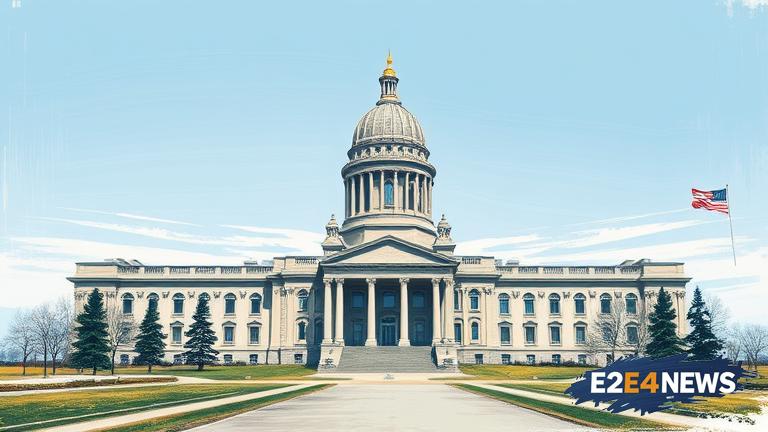A group of North Dakota lawmakers has introduced a bill that seeks to regulate social media companies and protect users’ data. The bill, which was proposed in response to growing concerns about the impact of social media on society, aims to increase transparency and accountability among social media platforms. The proposed legislation would require social media companies to disclose their data collection practices and provide users with more control over their personal data. Additionally, the bill would prohibit social media companies from using algorithms that prioritize sensational or provocative content over more nuanced and informative posts. The lawmakers behind the bill argue that it is necessary to protect users from the potential harms of social media, including the spread of misinformation and the erosion of civil discourse. They also argue that the bill would help to promote a healthier and more balanced online environment. The proposed legislation has been met with support from some advocacy groups, who argue that it is a step in the right direction towards regulating the social media industry. However, others have expressed concerns that the bill could have unintended consequences, such as stifling free speech or limiting the ability of social media companies to innovate. The bill is currently being considered by the North Dakota state legislature, where it is expected to face significant debate and scrutiny. If passed, the bill would make North Dakota one of the first states in the country to regulate social media companies in this way. The proposed legislation is part of a growing trend of efforts to regulate the social media industry, which has come under increasing scrutiny in recent years. Social media companies have been criticized for their role in spreading misinformation, facilitating online harassment, and prioritizing profits over user well-being. In response, lawmakers and regulators have begun to explore new ways to regulate the industry and protect users. The North Dakota bill is just one example of this trend, and it is likely that we will see more efforts to regulate social media companies in the coming months and years. The proposed legislation has also sparked a wider debate about the role of social media in society and the need for greater regulation of the industry. Some argue that social media companies have become too powerful and that they need to be held accountable for their actions. Others argue that regulation could stifle innovation and limit the ability of social media companies to provide valuable services to users. The debate is complex and multifaceted, and it is likely that we will see ongoing discussion and debate about the issue in the coming months and years. The North Dakota bill is a significant development in this debate, and it will be interesting to see how it plays out. The proposed legislation has the potential to have a significant impact on the social media industry and on users in North Dakota and beyond. It is likely that we will see other states and countries following suit and proposing similar legislation in the coming months and years. The bill is a step towards creating a healthier and more balanced online environment, and it is an important development in the ongoing debate about the role of social media in society. The lawmakers behind the bill are to be commended for their efforts to protect users and promote transparency and accountability in the social media industry. The proposed legislation is a significant step forward, and it has the potential to make a positive impact on the lives of users in North Dakota and beyond. The bill is currently being considered by the North Dakota state legislature, and it is expected to face significant debate and scrutiny. The proposed legislation is part of a growing trend of efforts to regulate the social media industry, and it is likely that we will see more efforts to regulate social media companies in the coming months and years. The North Dakota bill is just one example of this trend, and it is likely that we will see other states and countries following suit and proposing similar legislation in the coming months and years.
